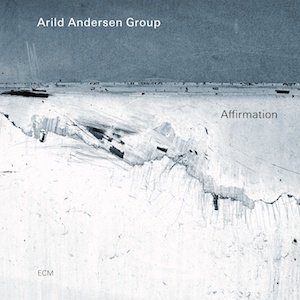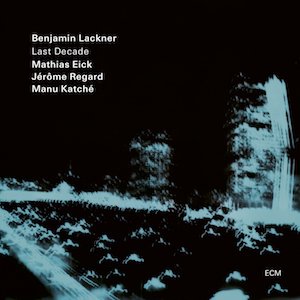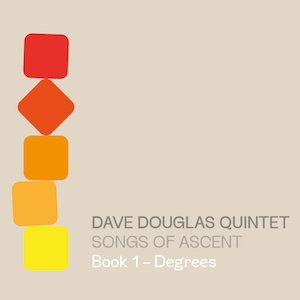Label: Fresh Sound New Talent, 2022
Personnel - Iago Fernandez: drums, organ, voice; Mark Turner: tenor saxophone; Joris Roelofs: bass clarinet; David Virelles: piano; Ben Street: double bass; Yumi Ito: vocals (#1,4,9); Wilfried Wilde: guitar (#1,4); Kuba Dworak: double bass (#1); Song Yi Jeon: vocals (#9).
Luzada is a grown-up album with a beautiful collective sound fabric and sublime improvisational occasions. The Galician drummer and composer Iago Fernandez, who is based in Basel, Switzerland, assembled a formidable group with a dynamic two-horn frontline composed of American saxophone titan Mark Turner and Dutch bass clarinetist Joris Roelofs. The bassist Ben Street and pianist David Virelles are majestic in the rhythm section, and there are guests on selected tracks that help coloring some of his healing undertones and thoughtful meditations.
“Almas Viaxeiras” opens the doors to Fernandez’s sonic world with a quintuple time feel and a delicate, homogeneous texture that, suggesting a slight Brazilian tinge, serves as a keynote to Japanese-Polish singer Yumi Ito’s singing. The poem, written in Galician by Iago, is about the impossibility of physical contact between two deeply connected souls during the pandemic. Turner and the guest French guitarist Wilfried Wilde are featured here, the latter adorning the concluding head.
Ito also sings in Galician on the appreciable “Flor Esvelta” and joins timbres with South Korean singer Song Yi Jeon on “Purple Light”, which has illuminating arpeggiated piano clearing the path to improvisations by Turner and Roelofs. Commanding their instruments with authority, both musicians interweave lines on Xan Campos’ energizing “Cadeas Por Fin”, the sole non-original of the album, as if they came from the same mind. Before that, the spotlight was on Virelles, who introduces the excellent “Arrolo de Alba” with a slow drive and deep chordal underpinning. Roelofs explores darker corners and timbres here, which contrast with the surrounding light lines, and Street delivers a fine, grounded solo.
Brimming with self-possessed pleasure, “Doces” is underlined with a surefooted rhythm after a gauzy chamber-like intro. Roelofs really hits the spot while making fluid conversation; he’s followed by the intervallic grandness of Turner, who effortlessly gives wings to a brilliant phrasing. The album closes with “Curarei”, whose folksy melody and churning rhythm don’t blur other elements drawn from chamber jazz and classical music.
Surrounded by wonderful musicians who understood his music, Fernandez shows he’s a sensitive drummer and qualified composer. Unhesitatingly, Luzada was one of the most agreeable surprises I had this year.
Favorite Tracks:
02 - Doces ► 05 - Cadeas por Fin ► 09 - Purple Light








































